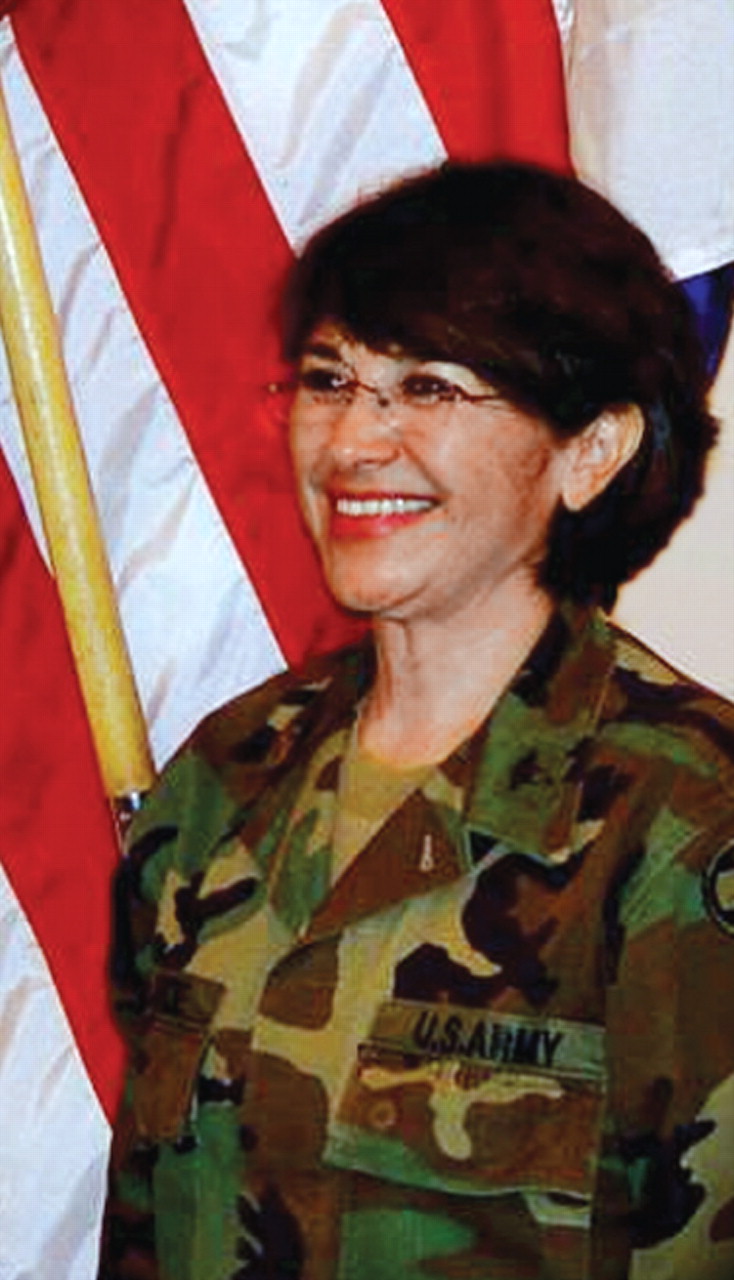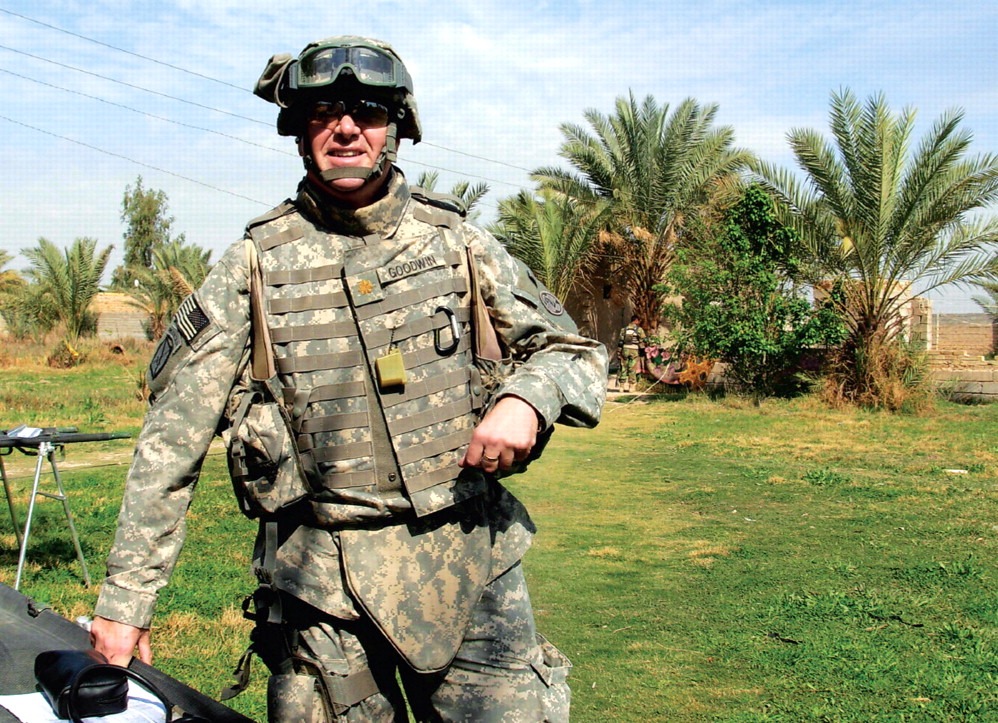On most days of most years, Madeline Belarde, R.N., M.S., is a psychiatric nurse in charge of two wards at the Colorado Mental Health Institute in Pueblo. But on occasional weekends at home, and for longer stretches in Iraq, she's Maj. Belarde, commander of the 1835th Medical Detachment Combat Stress Control team.
Belarde has already served one tour of duty in the war, and her unit completed training and left for Iraq at the end of April. The 43 soldiers in her unit include psychologists, social workers, occupational therapists, nurses, nurse practitioners, 68Xs—the Army's code for mental health technicians—and one psychiatrist, APA member Matthew Goodwin, M.D.
Goodwin, a forensic psychiatrist, works with Belarde at the Colorado Mental Health Institute. He served as an enlisted soldier in the Army from 1976 to 1979. He then went to medical school, was a physician in the Colorado National Guard, and joined the Reserves in 2006. He spent four months in Iraq from December 2006 to April 2007.
Combat stress control teams have their roots in U.S. Army practices developed in World War I and elaborated during major conflicts ever since. Their goal is to lessen the chances of combat stress occurring or deal with it close to where soldiers fight to get them back to duty as quickly as possible. Current Army doctrine recognizes that the pressures of combat are unavoidable but says they can be mitigated by good leadership, proper training, and services provided by combat stress control teams when needed.
Stress induced by war is “a normal reaction to abnormal conditions,” in the Army's view, but that doesn't mean it is primarily a medical problem. Military bearing and roles remain the standard for everyone at the team's base of operations. In fact, “Soldiers are never labeled as patients or clients during such treatment,” according to the Army surgeon general's Web site.
Belarde's role as a commander is not unusual. Psychiatric nurses headed all three combat stress detachments sent to Iraq in 2005-2006.
Belarde divides her team into two functional units, in the field, although individuals may move between the two units. A detachment like the 1835th ordinarily supports a division or its equivalent “The fitness team sets up a clinic and the prevention teams embed with combat units on nearby bases,” she explained to Psychiatric News. Individually or in small classes, they offer a range of mental health interventions.
Enlisted members of the team are crucial to its success. They often can elicit candid emotional reactions to events from peers who might hesitate to open up to an officer. Even the cook and the mechanic attached to the team get combat stress control training, said Belarde. “They can serve as a referral and a resource for the soldiers they work with. It's like having everyone know CPR.”
The team's varied professionals tailor their interventions to fit each soldier.
“We really respect everyone's level of stress,” said Belarde.“ We offer whatever for ongoing, preexisting conditions like ADHD, obsessive-compulsive disorder, or depression,” he said in an interview.“ It's strange that in the midst of a war, we're doing regular psychiatry.”
Of course, there's an added, less benign, dimension that is lost on no one in the unit.
“We also help people who have just lost a close friend or have been through a life-threatening, near-death experience when an explosive device goes off,” he said. “Here in the U.S., you work with people you've diagnosed, evaluate their medications, do therapy with them, and hope they do better. But in Iraq, your patients are going back and being exposed to the same stressors that produced their symptoms.”
Goodwin has also served on the prevention side of the team, traveling to small battle positions manned by 12 or 15 soldiers who are always focused on preparing for the next combat patrol or rehashing the last one.
“Sometimes I'll spend the day just talking or eating meals with them, to build trust,” said Goodwin. “But I also see and hear a lot of things the soldiers are experiencing.”
Besides helping individual soldiers, Goodwin and Belarde work up and down the chain of command. “Some of the most rewarding work we do is consulting with everyone from sergeants to battalion commanders, helping them do their jobs better,” said Goodwin. “It's a little like family therapy.”
The team trains one weekend a month in Colorado on basic “soldier skills” such as operating radios, handling weapons, and surviving in a combat theater, said Goodwin. Only occasionally do they get a refresher course on combat-stress reactions. Most of their clinical knowledge draws on their civilian jobs or prior experience in Iraq.
Last year's Army survey of mental health issues in the war zone also noted the stresses that people like Belarde, Goodwin, and their colleagues face after months in Iraq—personnel shortages, inadequate equipment, and a never-ending task before them.
But burnout isn't limited to her career in the service, said Belarde. The strains of military medicine are reflected in nursing shortages in the civilian world too. She is preparing her team to adapt as best as possible in the field.
“Our unit is made up of volunteers,” she said. “They know what to expect, but it's important that we take care of ourselves too.”
Information about the U.S. Army's combat stress control program is posted at<www.behavioralhealth.army.mil/provider/general.html>.▪


